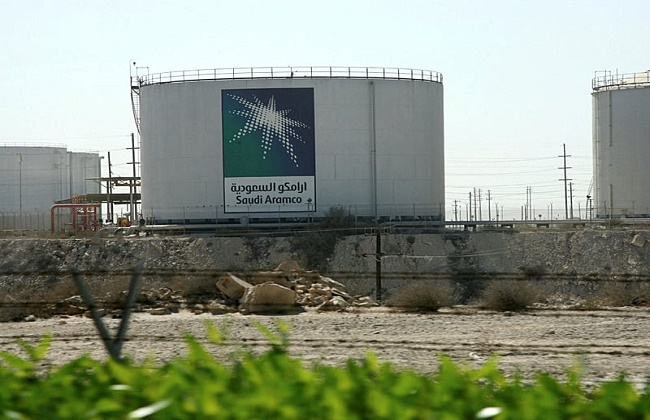
Saudi Aramco on Sunday reported a 24.7 percent decline in profits in 2023 compared to the previous year, the result of lower oil prices and production cuts.
The oil giant said in a filing with the Saudi stock market that net income reached 454.7 billion Saudi riyals ($121.25 billion) in 2023, compared to 604.01 billion Saudi riyals ($161.07 billion) in 2022.
“The decrease mainly reflects the impact of lower crude oil prices and lower volumes sold, and weakening refining and chemicals margins,” Aramco said.
Russia’s invasion of Ukraine in February 2022 prompted oil prices to skyrocket, peaking at more than $130 per barrel that year.
Aramco reported what it described as record profits for 2022, giving the kingdom its first annual budget surplus in nearly a decade.
“In 2023 we achieved our second-highest ever net income. Our resilience and agility contributed to healthy cash flows and high levels of profitability, despite a backdrop of economic headwinds,” Aramco CEO Amin H. Nasser said in a statement.
“We also delivered for our shareholders with a 30% year-on-year increase in total dividends paid in 2023,” he added.
Last year, prices dropped to $85 per barrel, resulting in year-on-year profit drops of 23 percent in the third quarter, 38 percent in the second quarter and 19.25 percent in the first quarter of last year for Aramco.
– Extended supply cuts –
Prices are expected to rise to around $88 per barrel this year, partially due to global uncertainty driven by the Israel-Hamas war, Riyadh-based firm Jadwa Investment said in a report published in October.
They could reach $90 per barrel by the end of 2024, Jadwa Investment said.
Analysts say the kingdom needs oil to be priced at around $80 per barrel to balance its budget, though that could be thrown off by production cuts and ramped-up spending.
The world’s biggest crude oil exporter said last Sunday it was extending its oil supply cuts of one million barrels per day through June.
Riyadh first announced its voluntary cut after an OPEC+ meeting in June 2023.
It followed a decision in April 2023 by several OPEC+ members to slash production voluntarily by more than one million barrels per day (bpd) — a surprise move that briefly buttressed prices but failed to bring about lasting recovery.

